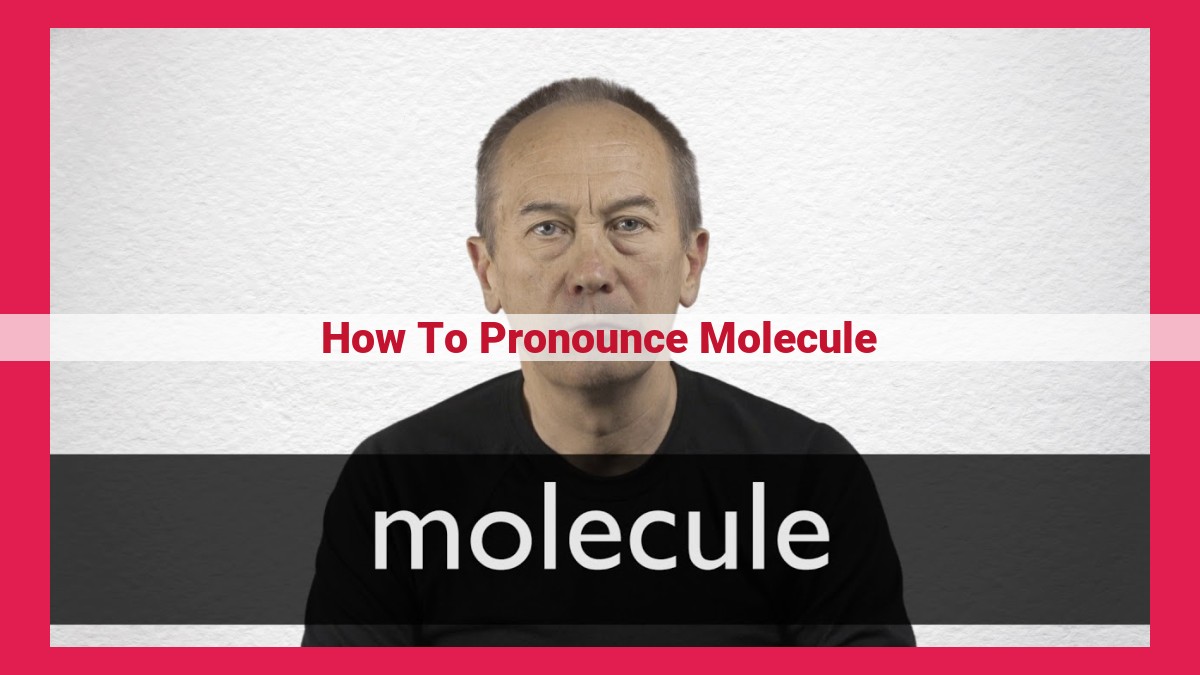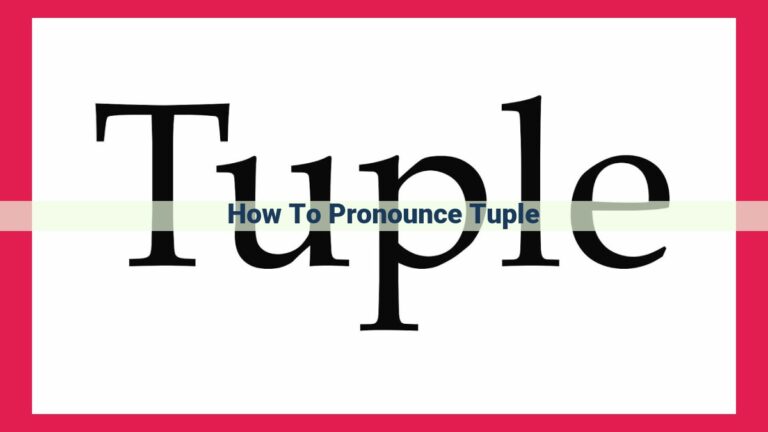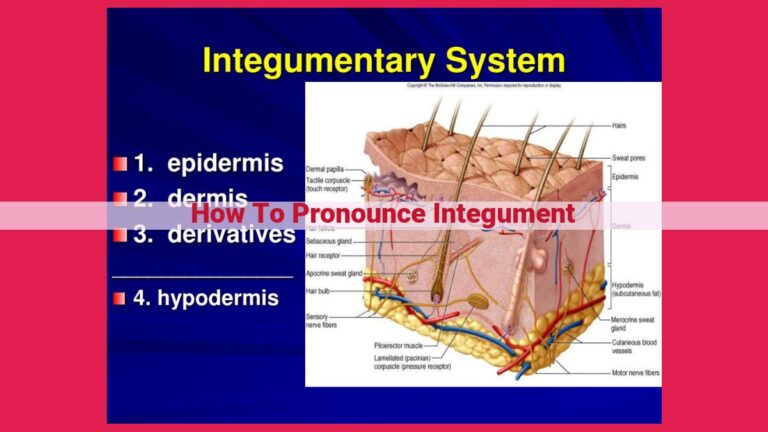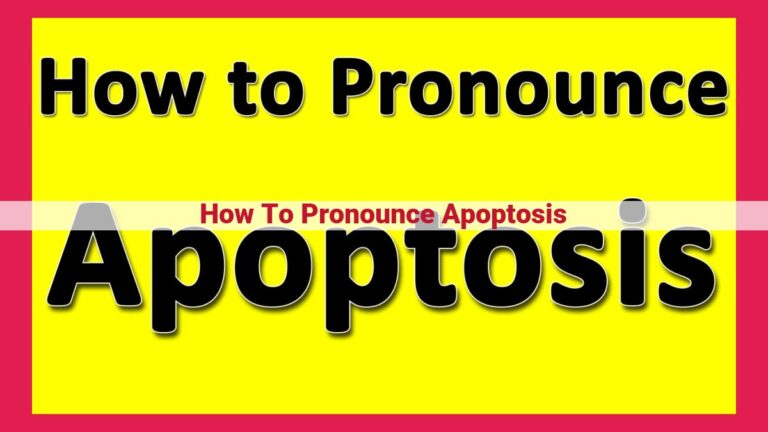Master Pronouncing “Molecule”: A Comprehensive Guide With Tips And Resources

To pronounce “molecule” correctly, divide it into syllables: “mol-e-cule.” Use pronunciation guides or dictionaries to hear its sound. The stress is on the second syllable, with IPA transcription [ˈmɑləˌkyo͞ol]. Beware of homophones like “mollusk.” Break the word into syllables, overemphasize the stressed syllable, and practice regularly to improve pronunciation.
Mastering the Pronunciation of “Molecule”
When it comes to scientific and technical vocabulary, the word “molecule” often appears, presenting a potential pronunciation challenge. But fear not, dear readers! With a little guidance and a dash of linguistic magic, you can conquer this word’s pronunciation like a pro.
Let’s start by breaking down the word into syllables: mol–e–cule. Each syllable represents a distinct sound unit. Understanding this division helps us grasp the word’s pronunciation and rhythm.
Syllable division also paves the way for a proper stress pattern. In “molecule,” the emphasis falls on the second syllable, e. This means we slightly elongate and pronounce this syllable with greater force. Remember, it’s not mol-e-cule but mol–e-cule.
Pronunciation Guide: Emphasize the importance of referencing pronunciation guides or online dictionaries to hear the correct pronunciation.
How to Pronounce “Molecule” with Confidence
When it comes to conquering any word, pronunciation is key. This is especially true for scientific terms like “molecule.” Mispronouncing it can not only hinder understanding but also lead to misunderstandings or even embarrassment. In this guide, we’ll delve into the art of pronouncing “molecule” with precision and ease.
Referencing Pronunciation Guides and Online Dictionaries
Don’t underestimate the power of pronunciation guides or online dictionaries. They are your allies in the quest for flawless pronunciation. Websites like Merriam-Webster and Forvo offer audio recordings of words, allowing you to hear exactly how native speakers pronounce them. This auditory experience is invaluable for perfecting your own pronunciation and avoiding any lingering doubts.
Understanding the Stress Pattern in “Molecule”
Pronunciation mastery involves understanding the stress pattern of a word, indicating the syllable that receives the most emphasis. In the case of “molecule,” the stress falls on the second syllable, giving us mo-LE-cule.
This emphasis not only assists in proper pronunciation but also plays a crucial role in distinguishing the word from homophones like “mogul” and “moloch.” By emphasizing the second syllable, we clearly differentiate “molecule” from these other words, ensuring precise communication.
Comprehending stress patterns is essential for both native and non-native speakers, enabling them to articulate words correctly and avoid mispronunciations. When unsure about the stress pattern of a particular word, don’t hesitate to consult a reliable source, such as a dictionary or pronunciation guide, to ensure accurate speech.
Phonetic Symbols: Introduce the International Phonetic Alphabet (IPA) and provide the IPA transcription of “molecule” for precise pronunciation.
Unlock the Precise Pronunciation of “Molecule” with Phonetic Symbols
The International Phonetic Alphabet (IPA) serves as a valuable tool for conveying the exact pronunciation of words. In the case of “molecule,” the IPA transcription helps us navigate its nuanced sounds with precision.
The IPA symbol for the stressed vowel sound in “molecule” is ɔ, which resembles the “aw” sound heard in “caught.” This sound is followed by the unstressed vowel ʊ, which sounds like the “oo” in “book.” The final consonant sound is represented by the symbol l, representing the familiar “l” sound.
Bringing these symbols together, we arrive at the complete IPA transcription of “molecule”: **/ˈmɑːlɪkjuːl/*. By referencing this phonetic representation, we can pronounce the word accurately, ensuring clear communication and avoiding misunderstandings.
Homophones of “Molecule” and Their Distinctions
In the realm of language, words often have doppelgangers known as homophones: words that sound the same but differ in meaning and spelling. “Molecule” is no exception to this linguistic quirk. Let’s delve into its homophonic companions and explore ways to distinguish them:
-
“Molecule” vs. “Mullah”:
- Molecule: A tiny particle composed of two or more atoms held together by chemical bonds.
- Mullah: A Muslim religious leader or teacher.
To differentiate between these, remember that “mullah” is associated with religious contexts, while “molecule” resides in the realm of science.
-
“Molecule” vs. “Mowley”:
- Molecule: As mentioned earlier, a tiny particle that forms the building blocks of matter.
- Mowley: A fictional character from “The Jungle Book,” the young wolf cub raised by a pack of wolves.
Here, the key distinction lies in the context. “Molecule” appears in scientific discussions, while “mowley” graces the pages of literature.
-
“Molecule” vs. “Mollusc”:
- Molecule: The tiny building block of matter.
- Mollusc: A type of aquatic invertebrate, such as an oyster or snail.
To avoid confusion, associate “mollusc” with its ocean-dwelling nature, while “molecule” remains rooted in the world of chemistry and biology.
-
“Molecule” vs. “Molehill”:
- Molecule: The fundamental unit of a compound.
- Molehill: A small mound of earth created by a mole’s tunneling.
The key here lies in scale: “molecule” is minuscule, while “molehill” represents something tangible and earthbound.
Master the Nuances of “Molecule” Pronunciation with These Surefire Tips
Embark on a linguistic adventure as we delve into the captivating realm of pronunciation, with “molecule” as our guide. This versatile term, used across scientific disciplines, requires a precise understanding of its phonetic nuances. Join us as we unveil time-tested strategies to conquer the pronunciation challenge:
Break It Down: Divide and Conquer
Begin by breaking down “molecule” into its syllabic components: mo-le-cule. This segmentation aids in mastering each syllable individually.
Emphasize the Stressed Syllable: Over-Enunciate for Clarity
Identify the stressed syllable in “molecule.” The second syllable, le, receives the strongest emphasis. Over-enunciate this syllable during pronunciation to ensure clarity.
Repetition Leads to Perfection: Practice, Practice, Practice
Consistency is paramount in pronunciation mastery. Repeat the word aloud, focusing on the correct stress pattern and syllable division. Regular practice will ingrain the correct pronunciation into your speech.
Engage Your Senses: Auditory and Visual Reinforcement
Utilize online dictionaries or pronunciation guides to listen to native speakers pronouncing “molecule.” This auditory reinforcement complements the visual cues provided by the phonetic transcription, enhancing your comprehension.
Connect with Homophones: Differentiate from Lookalikes
Words that share similar pronunciations, known as homophones, can pose challenges. “Molecule” shares a homophone with “mulch.” Understanding the subtle differences in their pronunciation prevents confusion.
Additional Pro Tips:
- Slow it down initially: Break down the word into syllables and pronounce them slowly. Gradually increase your speed as you gain confidence.
- Read aloud regularly: Practice pronouncing “molecule” within the context of sentences.
- Enroll in pronunciation courses: Seek professional guidance to refine your pronunciation and eliminate regional variations.





